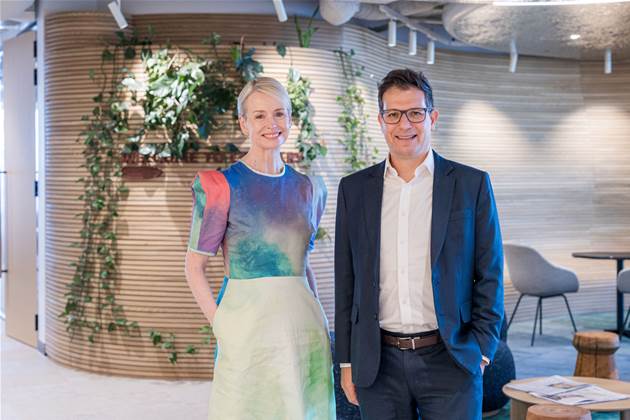Law firm MinterEllison has implemented several AI tools within its organisation to not only transform workflows but to disrupt themselves.

Speaking about the firm's AI use, its CEO Virginia Briggs said they’re trying to disrupt themselves so they are ahead of the game.
She explained the law firm is using the tools to get the revenue streams they have but in a "different way".
Briggs noted that digital disruption isn’t new to law firms.
“If you think about the dictaphone, we're constantly disrupted. It's also about explaining to people, this change that's of a different kind. I didn't have a computer on my desk when I started working either remembered people used to take a phone message and that was a carbon copy,” she said.
“We’ve come a long way since then, it's getting people confident that we have the skills that we need to deal with it as disruption. If you're not approaching it head-on and trying to be in front of it, then yes, be afraid."
Briggs said for MinterEllison it is “incredibly important” to lead the AI implementation from the top.
“We’ve had an innovation culture for a long time and our three values are excellence, curiosity and collaboration, generative AI covers all of them,” she said.
“It was interesting to take to the board at our strategy day in October, our posture. I deal with our board all the time, they're lawyers, so they're quite risk-averse and drill down with questions. But as soon as Gary [Adler] did his presentation, the board just went no brainer and that was great.”
A strategic imperative
Gary Adler, CDO at MinterEllison said the law firm sees generative AI as a “critical” technology for the future of the industry.
“The generative AI strategy has recently been endorsed by the executive and board as one of MinterEllison's strategic imperatives with a focus on adopting a leading-edge posture in this market,” he said.
Adler said MinterEllison’s approach has been multifaceted towards generative AI and ensures it enables the firm's overarching strategy across three key areas.
“The first area is the client lens our clients; how will we use it to innovate the way that we produce work for our clients to enhance their experience by generative AI? The second is productivity; how do we automate those menial tasks to create a much more productive workforce?” He said.
“Lastly, our most important asset is our people. How do we remove the layers of pain and mundane and genuinely move our people up the value chain so they can focus on the much more complex elements of the matter? Which is what they want to be doing and certainly what our clients want as well.”
Adler said MinterEllison has a long history of using AI and automation within its firm.
“We've been using document automation and workflow automation since 2008. We started developing AI tools back in 2016,” he said.
“Generative AI is the latest in the toolset of our what we call our hyper automation strategy, and we expect this one will be the most prolific.”
However, Adler noted this strategy doesn’t work without its people.
“A technology strategy alone has no value if our number one asset, our people aren’t poised to take advantage of what's going to be exponential change. We've implemented several initiatives to increase the digital fluency of our workforce and to promote continuous learning,” he said.
Some of those initiatives include a digital academy, creating their crypto called Mintcoin and an innovation scholarship.
“In terms of strategic partnerships, we've recently partnered with an AI startup at a leading international university with a focus on leveraging generative AI, regulatory compliance and ESG management,” he said.
“And of course a partnership with Microsoft as one of the first law firms globally to be invited to sign up for Microsoft Copilot early access program as well as the adjoining research program.”
He ended, “This is a clear signal to both our people and our clients, that we are committed to leading generative AI in our field to enhance our client's experience, our productivity and our people.”


_(23).jpg&h=140&w=231&c=1&s=0)
_(33).jpg&h=140&w=231&c=1&s=0)







 iTnews Executive Retreat - Security Leaders Edition
iTnews Executive Retreat - Security Leaders Edition
 iTnews Benchmark Awards 2026
iTnews Benchmark Awards 2026
 iTnews Cloud Covered Breakfast Summit
iTnews Cloud Covered Breakfast Summit
 The 2026 iAwards
The 2026 iAwards












_(1).jpg&h=140&w=231&c=1&s=0)



